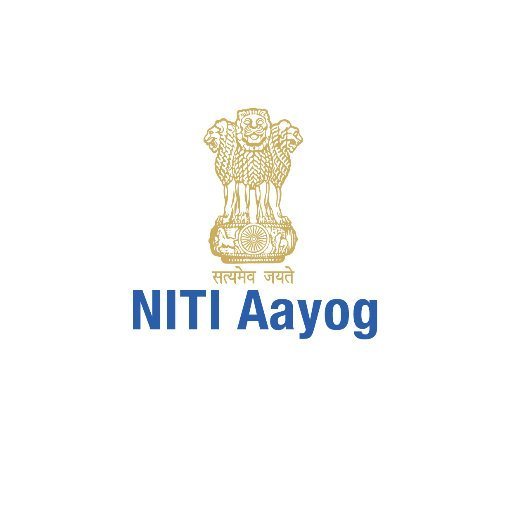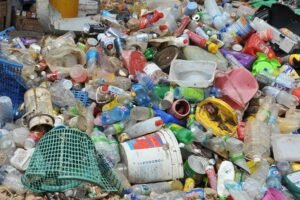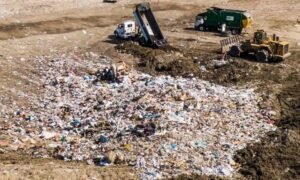NITI Aayog and UNDP India today held first regional capacity building workshop for urban local bodies (ULB’s) on sustainable plastic waste management in Mumbai.
The capacity building workshop follows the launch of ‘NITI Aayog-UNDP Handbook on Sustainable Urban Plastic Waste Management’, released by NITI Aayog Vice Chairman Dr Rajiv Kumar, CEO Shri Amitabh Kant, Shri. Rameshwar Prasad Gupta, Secretary Ministry of Environment Forest and Climate Change, Special Secretary Dr K. Rajeswara Rao, and Ms. Shoko Noda, Resident Representative, UNDP India last month.
Special Secretary Dr K. Rajeswara Rao, NITI, and Ms Nadia Rasheed, Deputy Resident Representative, UNDP inaugurated the workshop which was attended by 40 governmentofficials from Urban Local Bodies, Urban Development Departments, and State Pollution Control Boardsin person and 100+ officials online.
“With the launch of Swachh Bharat 2.0, the Government of India is geared to make cities garbage free. Managing plastic waste better is critical to realise the goals of clean India. Through the workshop our aim is to provide practical solutions to the ULB’s to manage plastic waste more efficiently. The decentralized model for plastic waste management detailed in the handbook has been adapted globally and has shown potential of plastic recycling,” said Dr Rao.
“Maharashtra and Goa present before us numerous best examples to manage plastic waste and we are happy to launch our first workshop here. Learnings and solutions from this workshop will help in scaling up the workshops to other states in the coming months,” he added.
The Handbook has been jointly developed by UNDP India and NITI Aayog, in consultation with eminent experts and leading organizations in the domain of plastic waste. The discussion for the Handbook was initiated in February 2021. This was followed by over 20 virtual stakeholder consultations including Urban Local Bodies, Recyclers, Corporates, Civil Society Organizations, Academia. The format included expert interviews, focussed group discussions, and technical workshops covering 14 Indian cities and 4 South East Asian cities. The handbook presents best practices and examples from cities in India and Southeast Asia which face similar infrastructure and plastic waste challenges.
"UNDP’s Plastic Waste Management initiative promotes a sustainable model by collecting, separating, and recycling all types of plastic waste.It also ensures that SafaiSathis (waste pickers) are recognized and paid for their work. These workshops reflect our commitment to promote, scale up and replicate a sustainable model for waste management across cities to achieve the objectives of Swachh Bharat Mission 2.0. We are proud to partner and work together with the Government of India, NITI Aayog, and urban local bodies in this endeavour,” said Nadia Rasheed, Deputy Resident Representative, UNDP India.
The Handbook details plastic waste management through decentralized dry waste management. There are various waste management models in the country, and some of the important ones, such as the UNDP Plastic Waste Management Programme, have been captured here to help ULBs understand the process in a step-by-step manner. The Handbook also details different financial models which can be adopted for the economic inclusion and livelihood enhancement of waste pickers.
"Mumbai ranks high on the list of regions vulnerable to impacts of climate change. Sustainable plastic waste management is critical to managing climate change and the environment.The Mumbai Climate Action Plan to develop climate-resilient mitigation and adaptation already prioritizes waste management. We are already working with partners like UNDP to set up Swachhta Kendra to manage plastic waste and promote innovations that will help sustainably dispose of waste, create value, and help in mitigating climate change. We are thankful to NITI Aayog for this workshop and for providing a platform to urban local bodies of Maharashtra to share best practices," said Shri Suresh Kakani, Additional Municipal Commissioner, Brihanmumbai Municipal Corporation.









Leave a reply